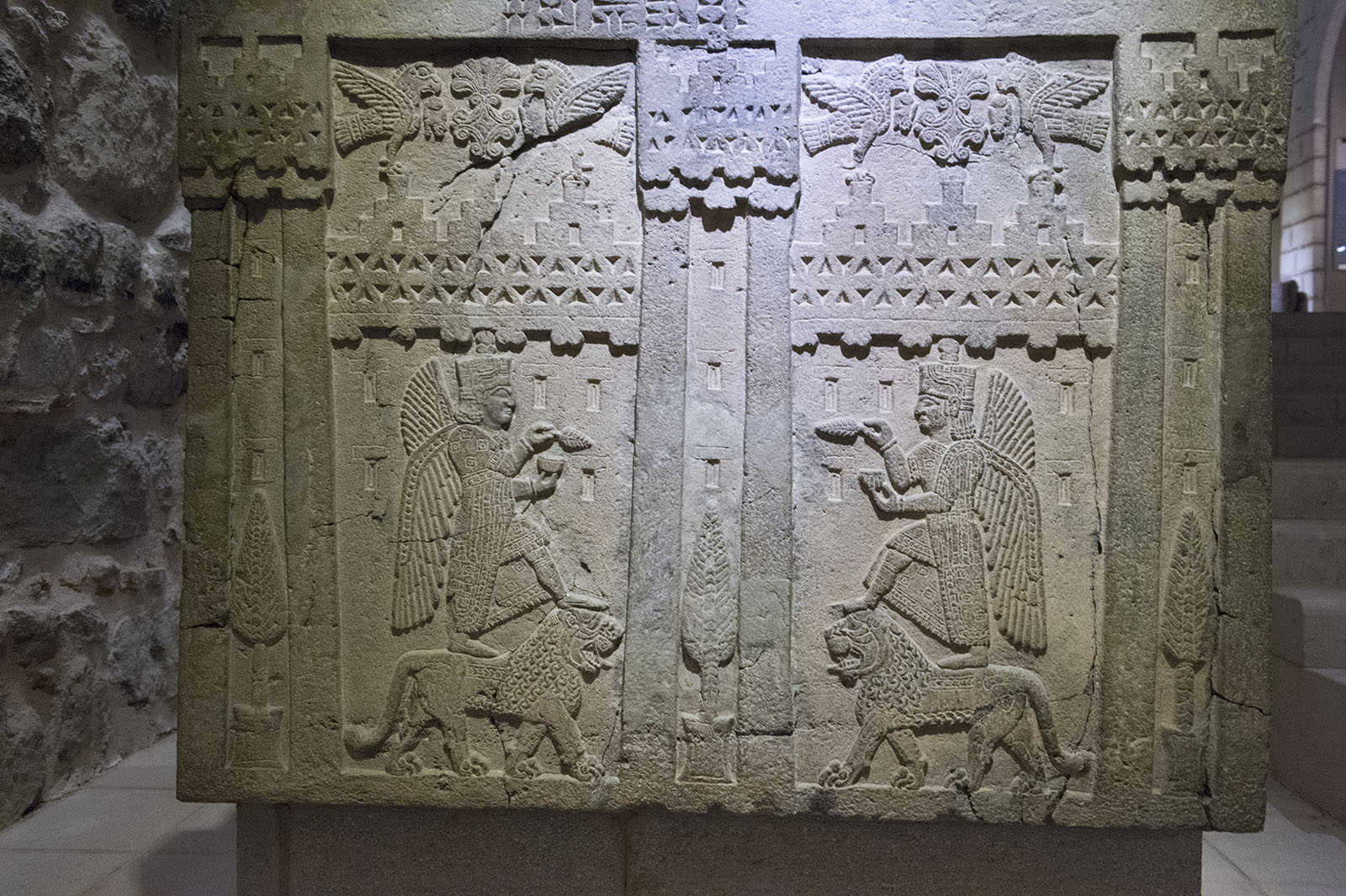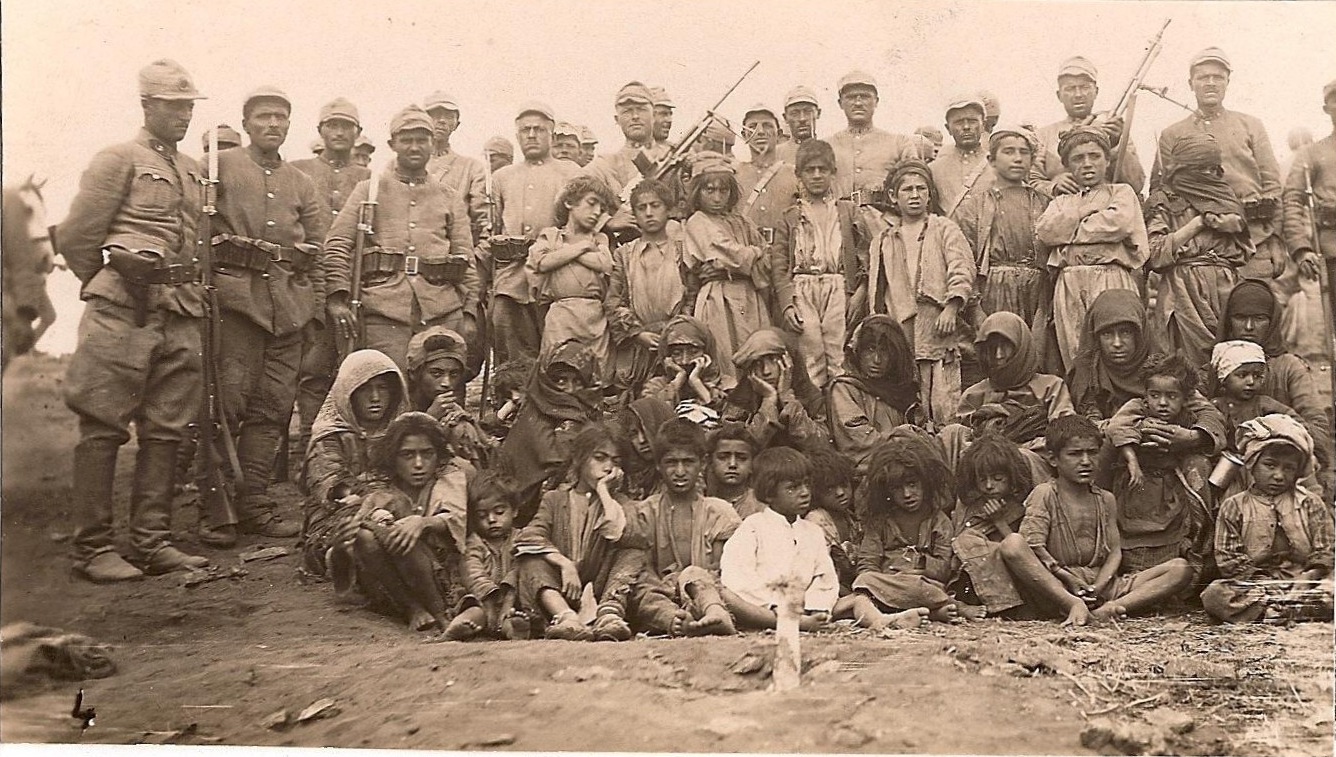|
Diyap Yıldırım
Dersimli Diyap Ağa (; 1852 – 1932), or Diyap Yıldırım after the Surname Law, was Turkish politician, Ottoman and later Turkish military officer, politician for the Republican People's Party (CHP), and an Alevi religious and tribal leader of Kurdish-Zaza origin. He represented Dersim (later Tunceli) in the Grand National Assembly of Turkey from 1920 to 1923. Biography Diyap Yıldırım was born in 1852 in the Çemişgezek district of Dersim as the son of Seyithan Ağa from Hozat, and Elif Hanım. He was from an Alevi Kurdish family belonging to the Ferhatuşağı tribe, one of the Zaza tribes of the Ovacık- Hozat region. Despite being an Alevi, he was a commander of the Hamidiye Corps in World War I. He participated in the war with his tribe to get fight the Russians in Bitlis and Siirt. Around this time, he met Mustafa Kemal Atatürk.Akademik Tarih Ve Düşünce Dergisi,Millî Mücadele Yıllarında Koçgiri Aşireti Reisi Alişan Bey’in Faaliyetleri,Bayram Ayna Mu ... [...More Info...] [...Related Items...] OR: [Wikipedia] [Google] [Baidu] |
Hozat
Hozat (, ) is a municipality (belde) and seat of Hozat District in Tunceli Province, Turkey. It is populated by Kurds and had a population of 3,634 in 2021. Seyfi Geyik from the Republican People's Party (CHP) was elected mayor in the local elections in March 2019. The town is divided into the neighborhoods of Diyap Ağa, Fikripaşa, Köprübaşı and Yenimahalle. History In the 10th century, it was known as Chozanon (), and formed a '' thema'' after its conquest by the Byzantine Empire shortly after 938. Near the city are the ruins of the Ergen church which according to Rudaw Rudaw Media Network () is a media broadcaster in the Kurdistan Region, Iraq. The network is headquartered in Erbil, the capital of Iraq's Kurdistan Region. It delivers content in multiple languages, including English, Kurdish, Arabic, and Turki ... was erected by Armenians 1300 years ago. References Populated places in Tunceli Province Kurdish settlements in Tunceli Province District munici ... [...More Info...] [...Related Items...] OR: [Wikipedia] [Google] [Baidu] |
Bitlis
Bitlis ( or ; ) is a city in southeastern Turkey. It is the seat of Bitlis District and Bitlis Province.İl Belediyesi Turkey Civil Administration Departments Inventory. Retrieved 30 January 2023. Its population is 53,023 (2021). The city is located at an elevation of 1,545 metres, 15 km from Lake Van, in the steep-sided valley of the Bitlis River, a tributary of the Tigris River, Tigris. The local economy is mainly based on agricultural products which include fruits, grain and tobacco. Industry is fairly limited, and deals mainly with leatherworking, manufacture of tobacco products as well as weaving and dyeing of coarse cloth. Bitlis is connected to other urban centres by road, including Tatvan on Lake Van, 25 km to the northeast, and the cities of Muş (Mush), 100 km northwest, and Di ... [...More Info...] [...Related Items...] OR: [Wikipedia] [Google] [Baidu] |
Gözlüçayır, Çemişgezek
Gözlüçayır () is a village in the Çemişgezek District, Tunceli Province, Turkey. The village is populated by Kurds and had a population of 108 in 2021. The hamlets A hamlet is a human settlement that is smaller than a town or village. This is often simply an informal description of a smaller settlement or possibly a subdivision or satellite entity to a larger settlement. Sometimes a hamlet is defined f ... of Bağlıca and Vakıflar are attached to the village. References {{DEFAULTSORT:Gozlucayir, Cemisgezek Kurdish settlements in Tunceli Province Villages in Çemişgezek District ... [...More Info...] [...Related Items...] OR: [Wikipedia] [Google] [Baidu] |
Elazığ
Elazığ () is a city in the Eastern Anatolia region of Turkey, and the administrative centre of Elazığ Province and Elazığ District. Founded in and around the former city of Harput, it is located in the uppermost Euphrates valley. The plain on which the city extends has an altitude of . Elazığ resembles an inland peninsula surrounded by the natural Lake Hazar and reservoirs of Keban Dam, Karakaya Dam, Kıralkızı and Özlüce. Its population is 387,072 (2022). Name Mezre Elazığ was once a suburb of the ancient fortress town of Harput called . Heinrich Hübschmann believed Mezre to be the settlement of Mazara () mentioned by Ptolemy, while Nicholas Adontz derived the name from an Arabic word meaning arable land or hamlet (borrowed into Turkish as 'hamlet'). The toponym originated as a shortening of ('hamlet of the aghas/landlords') or ('Çötelizade family namehamlet'). This may be explained by the fact that some notables from Harput had been exiled from ... [...More Info...] [...Related Items...] OR: [Wikipedia] [Google] [Baidu] |
Kayseri
Kayseri () is a large List of cities in Turkey, city in Central Anatolia, Turkey, and the capital of Kayseri Province, Kayseri province. Historically known as Caesarea (Mazaca), Caesarea, it has been the historical capital of Cappadocia since ancient times. The Kayseri Metropolitan Municipality area is composed of five districts: the two central districts of Kocasinan and Melikgazi, and since 2004, also outlying Hacılar, İncesu, Kayseri, İncesu, and Talas, Turkey, Talas. As of 31 December 2024, the province had a population of 1 452 458 of whom 1 210 983 lived in the four urban districts (Melikgazi, Kocasinan, Talas, Incesu), excluding İncesu, Kayseri, İncesu which is not conurbated, meaning it is not contiguous and has a largely non-protected buffer zone. Kayseri sits at the foot of Mount Erciyes (Turkish language, Turkish: ''Erciyes Dağı''), a dormant volcano that reaches an altitude of , more than 1,500 metres above the city's mean altitude. It contains a number of hist ... [...More Info...] [...Related Items...] OR: [Wikipedia] [Google] [Baidu] |
Turkish Nationalism
Turkish nationalism () is nationalism among the people of Turkey and individuals whose national identity is Turkish. Turkish nationalism consists of political and social movements and sentiments prompted by a love for Turkish culture, Turkish language and history, and a sense of pride in Turkey and Turkish people. While national consciousness in Turkish nation can be traced back centuries, nationalism has been a predominant determinant of Turkish attitudes mainly since the 20th century. Modern Turkish nationalism rose during the Tanzimat era. It also has a complicated relationship with Muslim identity, Pan-Turkism, and Turanism. History After the fall of the Ottoman Empire, Mustafa Kemal Atatürk came to power. He introduced a language reform with the aim to "cleanse" the Turkish language of foreign (mostly Arabic and Persian) influence. He also promoted the Turkish History Thesis in Turkish political and educational circles from 1930s. Turkish researchers at the tim ... [...More Info...] [...Related Items...] OR: [Wikipedia] [Google] [Baidu] |
Lausanne Conference Of 1922–1923
The Conference of Lausanne was a conference held in Lausanne, Switzerland, during 1922 and 1923. Its purpose was the negotiation of a treaty to replace the Treaty of Sèvres, which, under the new government of Mustafa Kemal Atatürk, was no longer recognized by Turkey. The conference opened in November 1922, with representatives from Great Britain, France, Italy and Turkey. The Government of the Grand National Assembly, Grand National Assembly of Turkey selected İsmet İnönü, Rıza Nur and Chief Rabbi Chaim Nahum as their representatives. Lord Curzon, the British Secretary of State for Foreign and Commonwealth Affairs, Foreign Secretary, was the co-ordinator of the conference, which he dominated. France and Italy had assumed that the Chanak Crisis had caused British prestige with Turkey to be irrevocably damaged, but they were shocked to discover that Turkish respect for Britain was undiminished. British troops had held their positions at Chanak, but the French had been ordered ... [...More Info...] [...Related Items...] OR: [Wikipedia] [Google] [Baidu] |
Dersim Massacre
The Dersim massacre, also known as Dersim genocide, was carried out by the Turkish military over the course of three operations in the Dersim Province (renamed Tunceli) against Kurdish rebels of Alevi faith, and civilians in 1937 and 1938. Although most Kurds in Dersim remained in their home villages, notes that "Dersim rebellion" is a label applied by some and contested by others thousands were killed and many others were expelled to other parts of Turkey. Twenty tons of “ Chloracetophenon, Iperit and so on” were ordered and used in the massacre. According to Turkish Army general Osman Pamukoğlu, in the 1990s, the Dersim massacre was carried on the operational order of Mustafa Kemal Atatürk. On 23 November 2011, Turkish prime minister Recep Tayyip Erdoğan apologized for the massacre, describing it as "one of the most tragic events of our near history" adding that, whilst some sought to justify it as a legitimate response to events on the ground, it was in reality "an ... [...More Info...] [...Related Items...] OR: [Wikipedia] [Google] [Baidu] |
Koçgiri Rebellion
The Koçgiri rebellion (; ) was a Kurdish uprising, that began in the overwhelmingly militant Koçgiri region in present-day eastern Sivas Province in February 1921. The rebellion was initially Alevi, but it succeeded in gathering support from nearby Sunni tribes. The tribal leaders had a close relationship with the Society for the Rise of Kurdistan (SAK). The rebellion was defeated in June 1921. Background After the Treaty of Sèvres was signed the Kurds began to feel more trustful that they were able to reach at least some sort of an autonomous government for themselves. Abdulkadir Ubeydullah, the son of Sheikh Ubeydullah and the president of the SAK, supported the idea of a Kurdish autonomy within Turkey. But Nuri Dersimi and Alisher Efendi wanted more than autonomy, they wanted to establish an independent Kurdistan according to article 64 of the treaty. Mustafa Kemal followed up on the events in the Dersim area and as it came to his knowledge that some of the Kurds we ... [...More Info...] [...Related Items...] OR: [Wikipedia] [Google] [Baidu] |
Kurdish Nationalism
Kurdish nationalism () is a nationalist political movement which asserts that Kurds are a nation and espouses the creation of an independent Kurdistan from Iran, Iraq, Syria, and Turkey. Early Kurdish nationalism had its roots in the Ottoman Empire, within which Kurds were a significant ethnic group. With the partitioning of the Ottoman Empire, its Kurdish-majority territories were divided between the newly formed states of Turkey, Iraq, and Syria, making Kurds a significant ethnic minority in each state. Kurdish nationalist movements have long been suppressed by Turkey and in the states of Iran, Iraq, and Syria. Since the 1970s, Iraqi Kurds have pursued the goal of greater autonomy and even outright independence against the Iraqi nationalist Ba'ath Party regimes, which responded with brutal repression, including the massacre of 50-100k Kurds in the Anfal campaign. The Kurdish–Turkish conflict, where Kurdish armed groups have fought against the state, has been ongoing ... [...More Info...] [...Related Items...] OR: [Wikipedia] [Google] [Baidu] |
Hasan Hayri
Hasan Hayri or Hasan Hayri Kanko () (b. 1881 (1497), Akpınar, Hozat, Tunceli - 1925), was a Kurdish politician from Dersim. Early life Hasanli was the son of Beyzade Murtaza Agha. After completing primary and secondary education in Dersim, he was taken to the Tribal Class of the Ottoman Military Academy on 3 October 1896. He was appointed to the 4th Army Siverek Tribal Cavalry Regiment, graduating with the rank of Lieutenant Cavalry on 24 February 1898. Career While he was in charge of the Van Military Service Branch, he became a deputy of Dersim at the election held for the last period of the Meclis-i Mebusan. In 1920, he served as a deputy of Dersim in the first period of the Turkish Grand National Assembly: He worked in the Parliament on Health and Social Aid, Petition, Economics, and National Defense Commissions. In the Sheikh Said Rebellion, Hasan Hayri was arrested and sentenced to death at the Eastern Independence Court, arguing that he participated in actions to ... [...More Info...] [...Related Items...] OR: [Wikipedia] [Google] [Baidu] |




